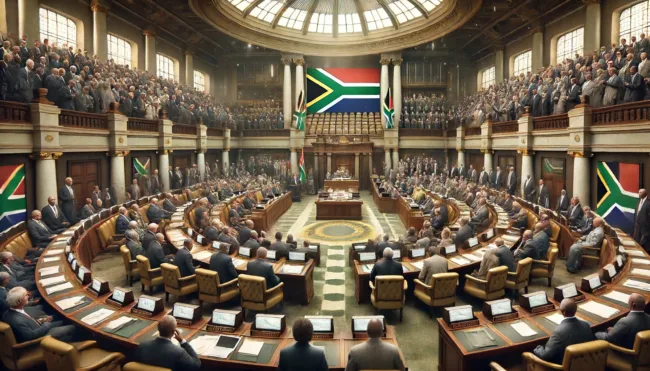South Africa’s President Cyril Ramaphosa secures second term in historic coalition government
In a pivotal moment for South African politics, President Cyril Ramaphosa, age 71, was reelected for a second term on June 14, 2024. Following the general elections on May 29, which saw no party winning an outright majority, Ramaphosa’s African National Congress (ANC) managed to form an unprecedented coalition government. This development marks a significant shift in the nation’s political landscape, ending the ANC’s 30-year dominance after it secured only 40% of the vote.
Formation of a Coalition Government
The ANC’s failure to maintain an absolute majority in Parliament led to strategic alliances with various parties. ANC Secretary General Fikile Mbalula confirmed that the new government of national unity would include the centre-right Democratic Alliance (DA), the Zulu nationalist Inkatha Freedom Party, and other smaller factions, making up a majority in the 400-seat National Assembly. This broad coalition represents a major realignment in South African politics.

President Cyril Ramaphosa reelected in South Africa, forming a historic coalition government.
Election Details and Opposition
In a secret ballot held among lawmakers in Cape Town, Ramaphosa won decisively with 283 votes. He faced competition from Economic Freedom Fighters (EFF) leader Julius Malema, who received 44 votes. Malema criticized the coalition, stating, “This is not a government of national unity, this is a grand coalition between the ANC and white monopoly capital. History will judge you harshly.” Despite the opposition, Ramaphosa expressed his honor and humility in his acceptance speech, emphasizing the historic nature of this election and the need for unity and collaboration across political lines.
Looking Ahead
President Ramaphosa is set to be sworn in next week in Pretoria, followed by the unveiling of his new cabinet. As he prepares to lead a government that includes a diverse range of political ideologies, the next five years will be crucial for addressing the challenges and opportunities that lie ahead for South Africa.
The formation of this coalition government could either stabilize the political landscape or lead to more complexities, depending on how effectively the different parties can work together. Ramaphosa’s leadership will be key in navigating these dynamics and fostering an environment of cooperation and progress.
Discover more from Business-News-Today.com
Subscribe to get the latest posts sent to your email.

